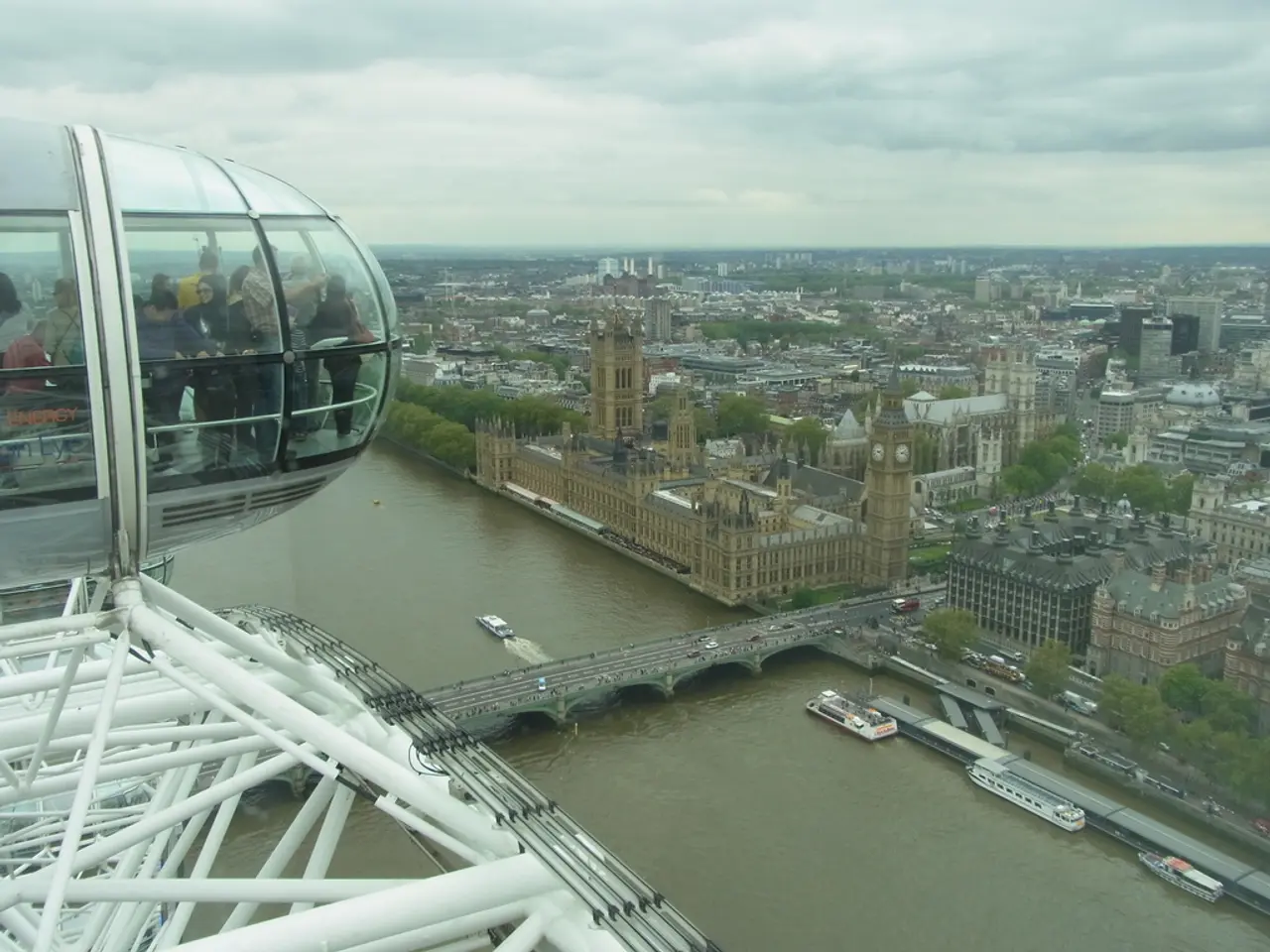Strapped Families Face Growing Income Deficit of £20,000 - Feeling the Financial Squeeze?
In the current economic climate, many Britons are seeking ways to secure their financial future. One such strategy is investing in an Individual Savings Account (ISA), a tax-efficient investment vehicle that offers several advantages.
Investing a set amount each month through a Direct Debit into an ISA can take advantage of pound-cost averaging, a strategy that smooths out the investment process by buying more when prices are low and less when they are high. This approach can help reduce risk and improve long-term returns.
However, the UK economy is facing challenges. According to recent reports, economic growth is slowing, with GDP failing to grow month-on-month in July and slowing to just 0.2% on a three-monthly basis. This sluggish growth is a concern for many, as it may impact the overall health of the economy.
The Resolution Foundation's report states that the story of the last twenty years has been one of a broad-based collapse in living standards. Had the growth of the decade before (1995 to 2005) continued, the typical family income today would be £51,000, rather than its actual level of £31,000 on average.
Despite these challenges, there are opportunities for those looking to secure their financial future. Pension contributions, for example, attract tax relief at the individual's marginal rate. Basic rate taxpayers receive 20% tax relief, while higher rate and additional rate taxpayers can claim further tax relief.
The current tax year's ISA allowance is £20,000, and it is a use-it-or-lose-it allowance. Moving investments into an ISA or pension (Bed & ISA or Bed & Pension) can make future returns tax-free, providing a significant boost to retirement savings.
Topping up a pension not only boosts retirement income but also slashes the individual's income tax bill today. This double benefit makes pension contributions an attractive option for many.
Meanwhile, the incomes of working-age families in private rented accommodation have increased by just 4%, while pensioner incomes have grown by 21% since 2005. In contrast, typical incomes for working-age families in Britain have grown by just 7% since 2005, compared to 35% during the decade before (1995 to 2005).
As the government seeks to address these economic challenges, there are signs of change. Raising living standards in every part of the UK is one of the Labour government's key policy aims. Employers are offering more salary sacrifice schemes to lower employment costs following the hike in National Insurance contributions for employers. Salary sacrifice can be an effective way to reduce adjusted net income and avoid certain tax cliff edges.
However, fears of tax hikes are mounting in the November Budget. The government increased capital gains tax rates and reduced the annual capital gains tax exemption, which may mean more ordinary investors may find themselves paying tax on their investments.
In conclusion, while the UK economy faces challenges, there are opportunities for those seeking to secure their financial future. Investing in tax-efficient vehicles such as ISAs and pensions can provide a significant boost to retirement savings and reduce tax liabilities. As always, it is essential to seek professional advice before making any investment decisions.
Read also:
- Federal petition from CEI seeking federal intervention against state climate disclosure laws, alleging these laws negatively impact interstate commerce and surpass constitutional boundaries.
- Duty on cotton imported into India remains unchanged, as U.S. tariffs escalate to their most severe levels yet
- Steak 'n Shake CEO's supposed poor leadership criticism sparks retaliation from Cracker Barrel, accusing him of self-interest
- Dim outlook for a major energy corporation




